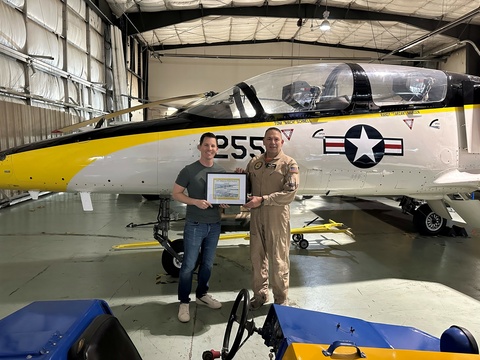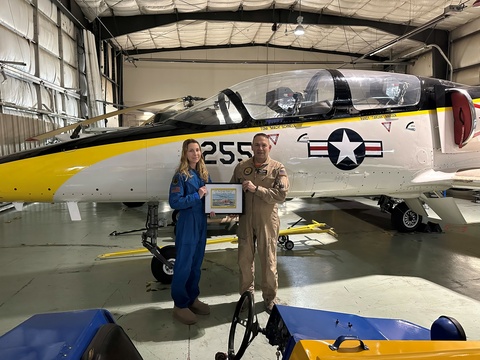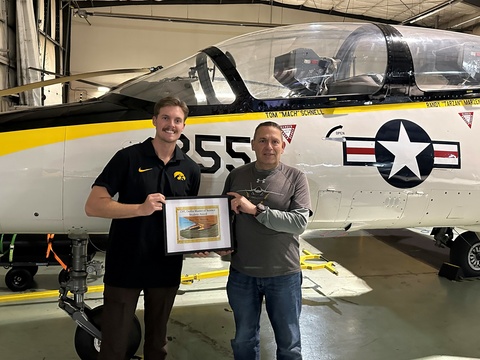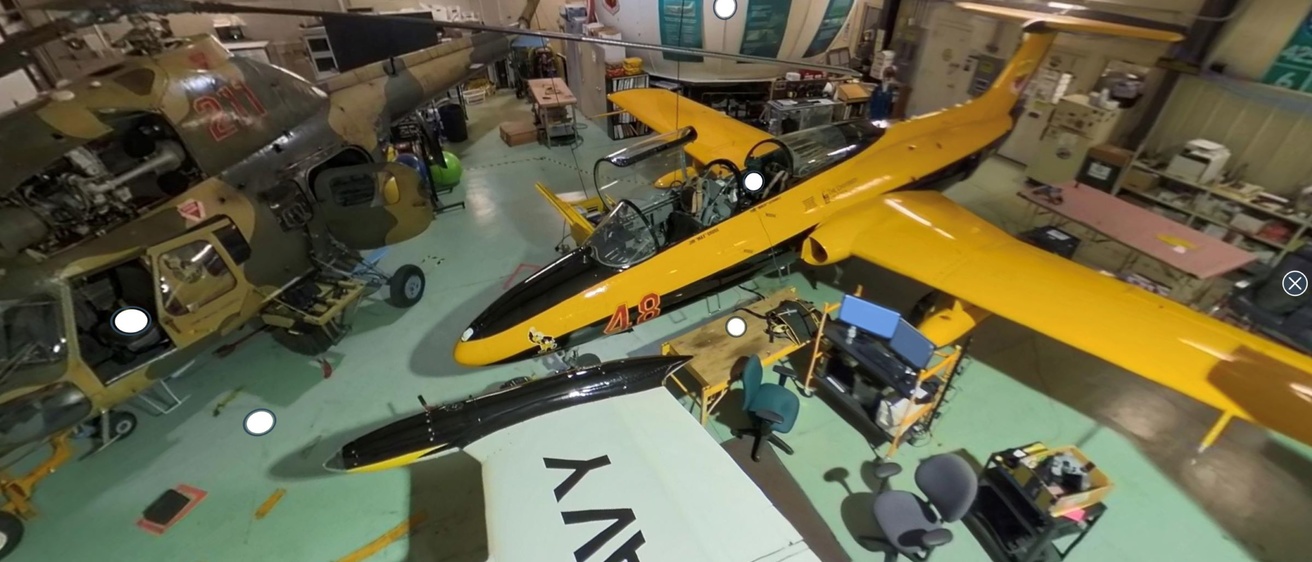The University of Iowa Operator Performance Laboratory (OPL) has announced awards for three students whose outstanding contributions led to flight test innovation. The following awards were issued:
The awards are named in reference to the various aircraft flown at OPL. Smaller aircraft are for master's students and larger ones are for PhDs.

To receive an award, the student must be involved in flight testing at the OPL and leverage the collected data toward completion of a graduate degree, according to Tom “Mach” Schnell, OPL director, UI professor of systems and industrial engineering, and Captain Jim "Max" Gross Chair in Engineering.
"The OPL is a unique place where outstanding individuals such as the students receiving these awards can push their creativity, attention to detail, and academic excellence to the limit,” said Schnell, who is also associate director of the Iowa Technology Institute.
Kyle Smith, OPL Albatross PhD Student Award
Kyle "Assassin" Smith, a major in the United States Air Force, has been honored for innovative flight test techniques in fixed wing jet aircraft. The Albatross award is named after OPL's Aero L-39 Albatross jet, the largest jet in OPL’s fleet. In the final year of a PhD program in industrial and systems engineering, Smith has been researching the effects of an attention calibration system used to help combat pilots manage their attention in real-time onboard an autonomous aircraft.

Smith also explored the factors that affect trust in autonomy and various methods for measuring trust. Smith was able to generate results from live and dynamic flight tests using experienced fighter pilots and demonstrated that an attention calibration system can increase overall human-autonomy team performance and trust.
Maggie Mayfield, OPL Sea Ranger Master of Science Student Award
Maggie Mayfield, who is pursuing a master’s degree in industrial engineering, was recognized for innovative flight test techniques in rotorcraft. The Sea Ranger award is named after OPL's two Sea Ranger helicopters. Mayfield is conducting research to examine visual dominance in degraded visual environments (DVEs) during rotorcraft operations. This research is being conducted on the OPL MI-2 helicopter testbed. While natural visual cues are processed intuitively, instrument displays require cognitive interpretation, adding to pilot workload and diminishing situation awareness. She is evaluating how the integration of terrain elevation grids, critical flight symbology, and artificial microtextures into head-mounted displays (HMDs) can restore visual dominance.

Beau Benzing, OPL Delfin Master of Science Student Award
Beau "Tox" Benzing, a United States Air Force lieutenant pursuing a master’s degree in industrial engineering, was recognized for innovative flight test techniques in fixed wing jet aircraft. The Delfin Award is named after OPL’s two Aero L-29 Delfin jets. Benzing is conducting research in tactical autonomy in the form of trust measurement, calibration, and prediction that was conducted as part of a USAF Test Pilot School (TPS) Staff Test Management Project (TMP) in the fall of 2024. Introducing tactical autonomy into aircraft cockpits has led to a change in human-machine distribution of operational responsibilities. Both overtrust and undertrust can be problematic. Too much trust in tactical autonomy can endanger the aircrew. Too little trust means that the aircrew wastes cognitive resources for supervisory control when it is unnecessary. Beau has recently presented his work at the 54th Annual West Coast Symposium of the Society of Experimental Test Pilots (SETP).
